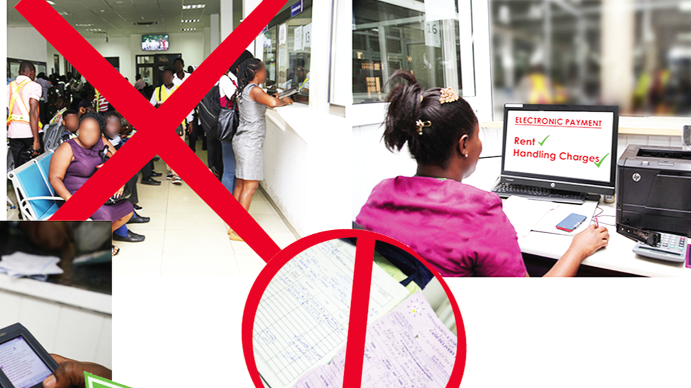
Towards efficient operations at the ports
Port efficiency constitutes a major determinant of successful business transactions carried out within a minimum span of time in port operations. Towards this end, there is the need to institute workable measures, in line with modern trends and best practice, aimed at reducing the time in clearing goods.
Advertisement
Over the past few years, operations at the country’s ports of entry have been characterised by unbearable delays, frustrations and allegations of bribery and corruption, as well as loss of revenue to the state.
To overcome these problems and sanitise the system, the government has decided to make operations at the ports paperless. This is meant to reduce or eliminate human intervention as much as possible from the system and, thereby, eliminate any possible payment of money to influence operations.
The new measures which have come into full operation are aimed at expediting the clearance of imported goods within a maximum of four hours and also help to eliminate revenue losses to the state, promote transparency, increase government revenue, reduce cost of business for importers and, ultimately, bring about efficiency at the ports.
Port efficiency is needed for rapid trade facilitation for importers, to eliminate frustrations and make it easy for businessmen and women to go about their duties. The ports are national assets which have seen massive investments that must be recouped by the state for socio-economic development and also for the common good.
The new system is heavily dependent on technology so operators at the ports, including importers, have been educated to make use of the technology to facilitate their operations. This means that all importers are expected to initiate their processes online and make all declarations in the same way to facilitate the process so as to avoid undue delays.
Also, under the new system, the 17 agencies that inspected goods at the ports have been reduced to only two, namely the Ghana Standards Authority and the Food and Drugs Authority. Again, they would go through a joint inspection and not separate inspection exercises as was the case in the past.
Ghana is not an island but part of the international community of nations that must ensure effective trade facilitation in line with best international practice. It is, therefore, appropriate and good that at long last, measures have been put in place to ensure that there is maximum efficiency at the ports. In Dubai, for example, in using the same technology, importers are able to clear their goods at the ports within seconds, showing their level of efficiency compared to Ghana that has operations characterised by delays emanating from inefficiency.
Under the new system, importers are expected to clear their goods within a maximum of four hours. This would be a great improvement over previous operations at the ports. With time, the system is expected to improve itself until the clearance time is significantly reduced further.
Users of port services are those that utilise that area as part of the transportation process of moving cargo to and from destination locations. Indeed, these users are made up of transportation carriers such as shipping lines, trucking firms that perform these movements, as well as shippers and individuals that provide the cargo and also themselves as passengers to be transported. All these users desire high-level efficiency in the operations of the ports.
Stakeholders are expected to obey the new rules of operation and collaborate with one another to achieve the desired maximum impact. The country has come of age and, therefore, needs to operate efficiently when it comes to transactions at the ports. This will not only ensure rapid operations but also eliminate undue delays, eradicate bribery and corruption, as well as effectively rake in the needed revenue for smooth national development.
The new measures just introduced at the ports may have a few teething problems. However, these problems are expected to be solved within the shortest possible time. It is for this reason that the country is hopeful of a better tomorrow as far as efficient operations at the ports are concerned.
The country deserves to advance in her rapid economic development and certainly the paperless operations are part of the measures needed to bring this about for the purpose of smooth economic development; and this explains why all hands must be on deck to support the new measures. This giant stride at the ports is long overdue because the rest of the world cannot wait for us as far as port efficiency is concerned.
The writer is Head of Public Relations, Ghana Standards Authority




